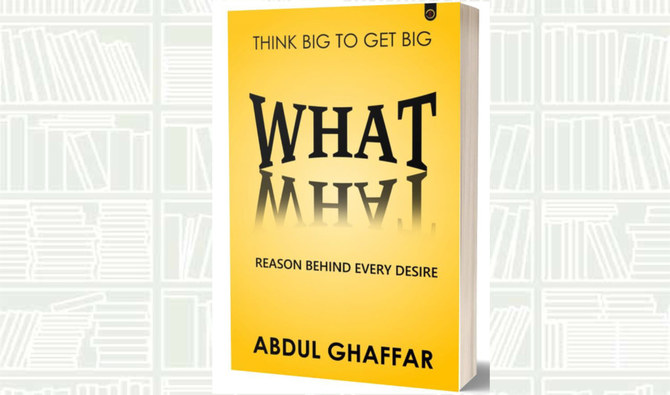Author: Abdul Ghaffar
In his second book, “What – Reason Behind Every Desire,” Saudi author Abdul Ghaffar takes readers on a journey through the depths of human desires, exploring the underlying motivations that drive us.
Ghaffar, a Riyadh resident, offers a fresh perspective on the complexities of human nature and the pursuit of fulfilment.
Ghaffar’s first book was “Why – Reason for Every Action,” and in his new work he is equally eloquent and thought-provoking as he delves into the fundamental question of why we want what we want. Drawing from psychology, philosophy, and his own life, Ghaffar skillfully unravels the intricate layers of our desires, shedding light on the subconscious forces that shape them.
Through engaging storytelling and astute analysis, Ghaffar encourages readers to reflect on their own desires and consider the deeper meanings behind them.
“The book’s strength lies in its blend of research and relatable examples, making complex theories accessible to a wide audience,” Ghaffar told Arab News. “The inspiration came from my deep curiosity about the reasons behind desires and motivations. I believe that understanding the ‘why’ behind our desires is crucial for personal growth and fulfillment. The impetus behind this work was the desire to provide readers with a valuable perspective on this topic, empowering them to make more conscious choices in life.”
Whether discussing the role of societal norms in shaping desires or exploring the concept of desire as a form of self-expression, the author has maintained a captivating narrative that keeps readers engaged from start to finish.
Moreover, “What – Reason Behind Every Desire” offers some practical insights and actionable steps for readers to better understand and navigate their desires.
Ghaffar’s writing is lucid and concise, ensuring that even complex concepts are presented in a simple manner.
The book has been nominated for the Next Generation Indie Book Awards in the Non-Fiction, Self-Help category, Ghaffar said, adding: “To be acknowledged by the Independent Book Publishing Professionals Group is truly humbling.”


























